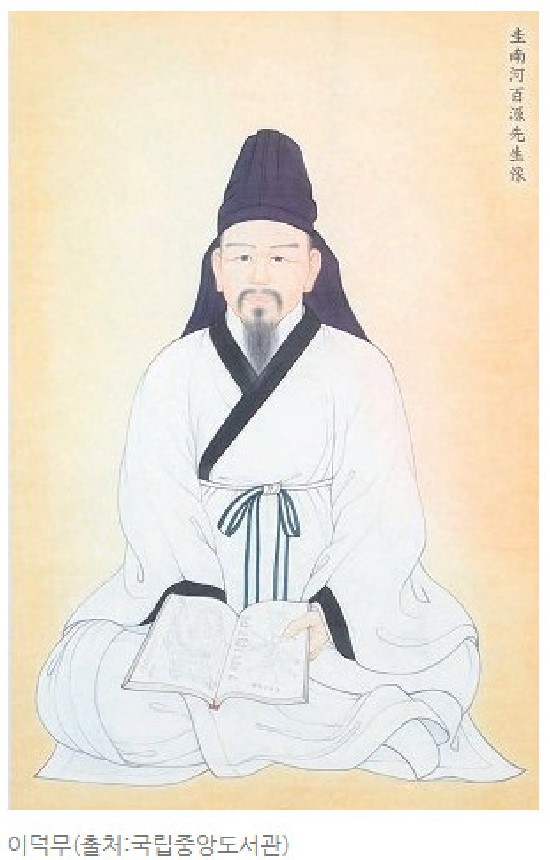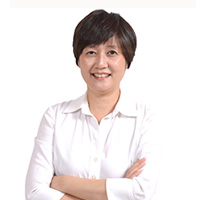[Scholars and their spaces] Reading, a way of soothing wounded hearts
By Kim Hoo-ranPublished : April 14, 2023 - 09:01

“When sadness strikes me, I look around, but I am still at a loss. I just want to dig myself into the ground, no longer having the desire to live. My broken heart will steady if, fortunately, I have a book in my hand.”
Yi Deok-mu (1741-1793), a Silhak scholar and poet of the late Joseon era (1392-1910), is said to have read almost 20,000 books in his lifetime. He had a nickname -- "ganseochi," meaning "a fool who only reads books." He said he was able to forget hunger, pain, heat and cold while reading.
There were many restrictions on Yi’s career as he was a "seo-eol," born to a father from the noble class and a mother from the common class. He could neither hold government positions nor plow the land because of his half-noble blood. Hunger and poverty were common for people of his background.
"Sasojeol," a small and simple etiquette book written in 1775, was one of his 10 books on etiquette and morals for scholars, women and children that could be applied in daily life. In this book, Yi judged a person’s character based on three criteria -- what books they read, how they treat people and how they react to upright advice.

Yi thought of scholars, called "seonbi," as people who constantly strive to practice human maturity first and not simply members of the ruling class. He saw consideration for others as important and wrote as follows: “In the summer, don’t say it’s hot next to someone who is wearing a long coat because of illness. If you are riding a horse and pass by a place where farmers gather to eat lunch, you should get off your horse."
Politeness and consideration for others was important in his time, and they are today.
Unfortunately, Yi overemphasized morality in some respects, describing women as objects requiring protection in his book. Yet the fact that he had the idea of changing women’s lives and eliminating some absurd social customs through education and reading should be remembered.
It was in 1779 that he gained fame as an intellectual when King Jeongjo established Gyujanggak, the royal library, and appointed competent people, eliminating the systemic discrimination against seo-eol and hiring outstanding scholars as copy editors and researchers among the half-nobles. Yi was appointed to the royal library along with a number of other seo-eol, including Park Je-ga and Yu Deuk-gong.
The original purpose of Gyujanggak was to publish and store writings and materials by previous kings, but the most important task was to compile "Ilseongnok," a diary-style log of the kings' daily lives. Yi, along with Park and Yu, were in charge of practical affairs as the editorial staff at Gyujanggak. It could be said that they were similar to today’s librarians.
As an official of Gyujanggak, Yi, with his own country-centered relativistic world view, recognized the relationship of Qing and Joseon as one between autonomous equals.
“Qing is just Qing. Joseon also has its own strengths, as is only Qing right? Although there may be a distinction between urban and rural areas, they must be viewed equally,” Yi wrote.
In his writings, we can find the concerns and debates among Joseon scholars about China's Qing Dynasty. Yi lived in an era in which old and new and conservative and progressives coexisted. Even if someone in his time pursued something innovative and creative, they could not be free from the yoke and bondage of the old, which limited intellectuals at that time.
“Every time I hold the doorknob to this room, my heart always beats. The moment I enter, it seems that the neatly arranged books are looking at me all at once. Just the thought of meeting someone in a book makes my heart flutter. The old, dusty bookshelves seem to be waiting for my touch. They comfort my gloomy heart with the songs of elders, and also excite me with the sound of waves from an unfamiliar island,” he wrote.
Reading not only comforted his sorrows, but also led him to a new era in a period of great transition.
By Park Jeong-eon (histopia78@gmail.com)
The writer is a senior researcher at the Institute of Korean Confucian Culture. -- Ed.





![[Herald Interview] 'Amid aging population, Korea to invite more young professionals from overseas'](http://res.heraldm.com/phpwas/restmb_idxmake.php?idx=644&simg=/content/image/2024/04/24/20240424050844_0.jpg&u=20240424200058)












![[KH Explains] Korean shipbuilding stocks rally: Real growth or bubble?](http://res.heraldm.com/phpwas/restmb_idxmake.php?idx=652&simg=/content/image/2024/04/25/20240425050656_0.jpg&u=)

